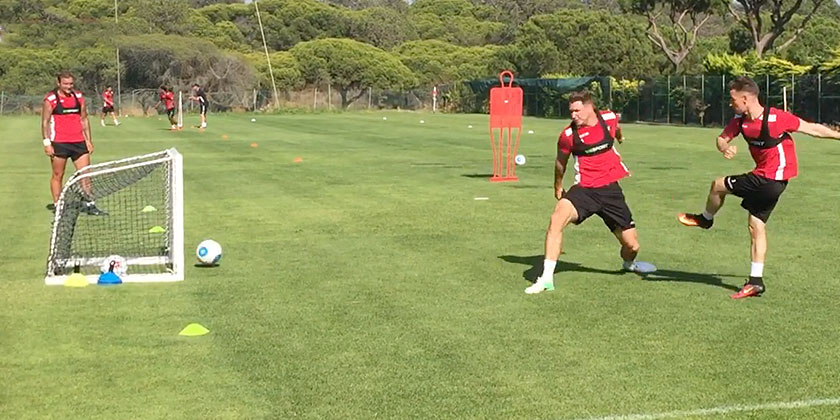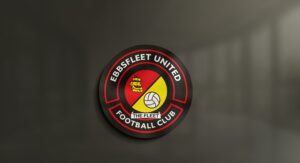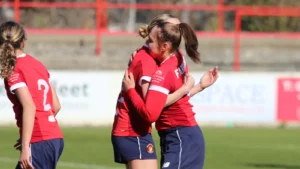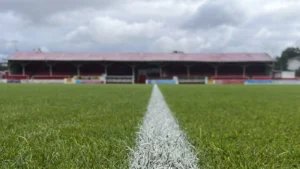Tuesday morning’s video clip showed how much the food at the Ria Park Hotel, Vale de Lobo means to not only Nathan Ashmore and Anthony Cook, but to all the players. This is not just because it’s available at the hotel, but because each Fleet player is burning between 600-700 calories per training session.
Kelly Cooper (pictured below), Senior Sports Science Technician at the University of Greenwich, on her second pre-season tour with the Fleet, explained that “with their normal metabolic rate plus the training sessions the lads are doing, means they have to replace between 3,000-4,000 calories per day; so three good meals each day is critical to keep them fuelled for the work they have to do whilst in Portugal”.
Club Sports Scientist, Stuart Bauld, another key member of the all-important Fleet backroom team, also explained the importance of rehydration for the players, especially out here in Portugal where they have been training in temperatures of up to 33° C. Stuart weighs each player before and after each training session and advises on the amount of fluid they must take on board in order to rehydrate after each session. Stuart explained that “players also receive monohydrate creatine supplements (that occur naturally in our muscles) that are well established in sports science to enhance muscle power and aid with high-intensity short duration activities such as required in football”.
There has been much comment made of the Ebbsfleet “bras” that the players have been seen wearing in images and video (see below) sent back from Portugal. Kelly Cooper explained that “these are the vests that hold the GPS trackers used to plot and gather data such as the distance covered by each player, high-intensity sprints, acceleration and deceleration and heart rate. This external and internal data together then show how each player responds to a training session. This training data already gathered will then be compared with data to be gathered during 11-a-side matches to be played out here, so that the Football Management Team can assess the suitability of the training sessions they organise”.
Stuart Bauld added “this information can then be used to alter training sessions depending on the individual needs of the positions played in by the Fleet squad and to avoid muscle damage. This helps the coaches know how each player is responding to the training being put on by them”.
Stuart also gathers data on how each player responds to training sessions measured by tiredness, strains, recovery, sleep patterns and so on.
All of this clearly shows how committed the EUFC Board and football management are to ensuring the Fleet squad is as well prepared as it can be for the coming season and to support our players in the same way that a Football League team would do.






